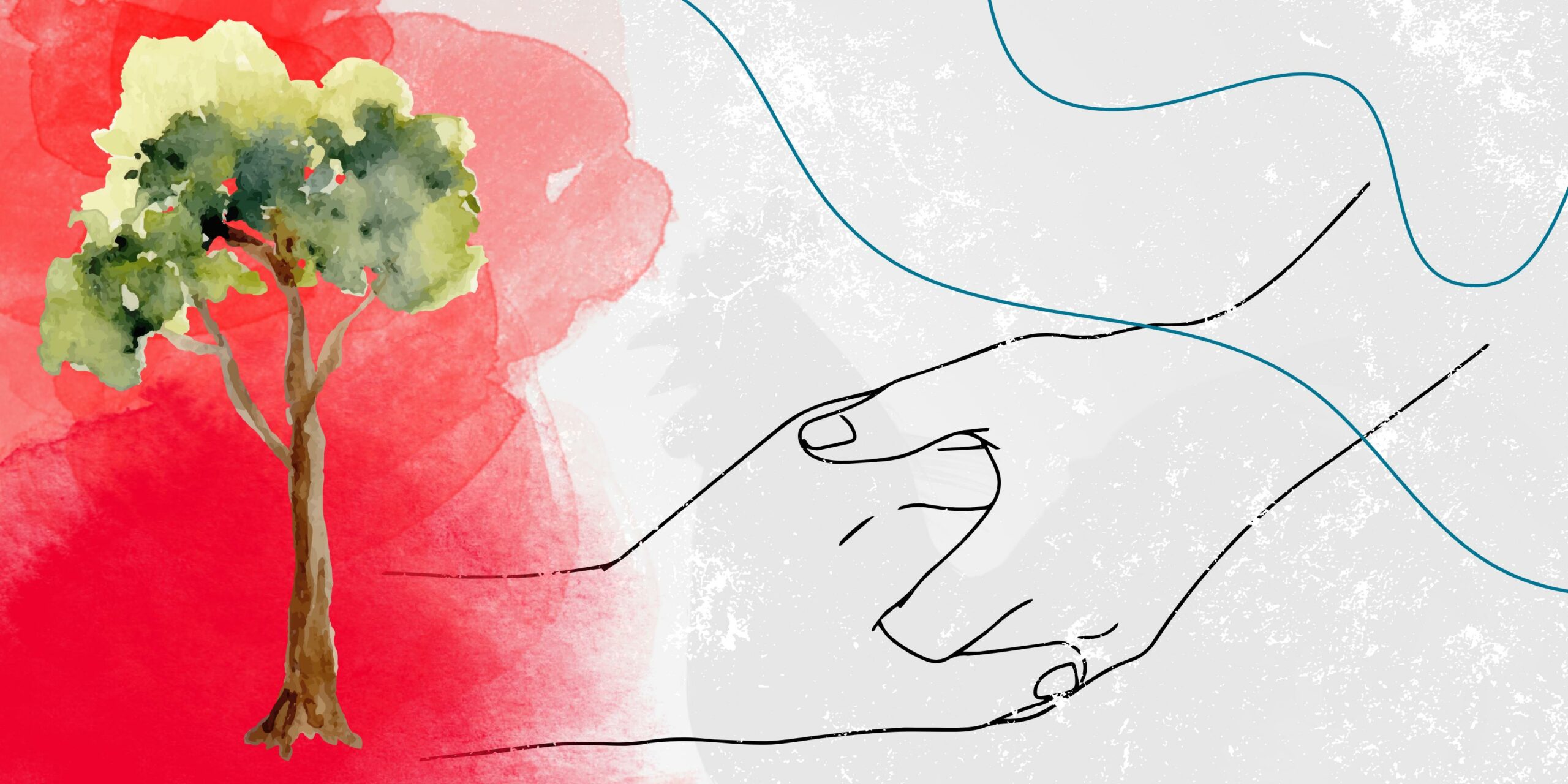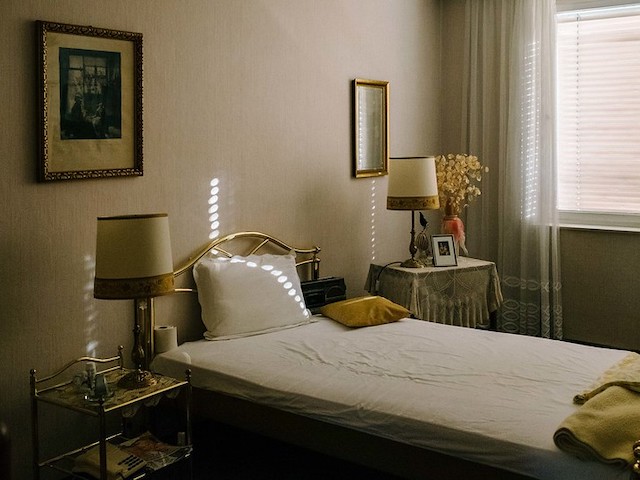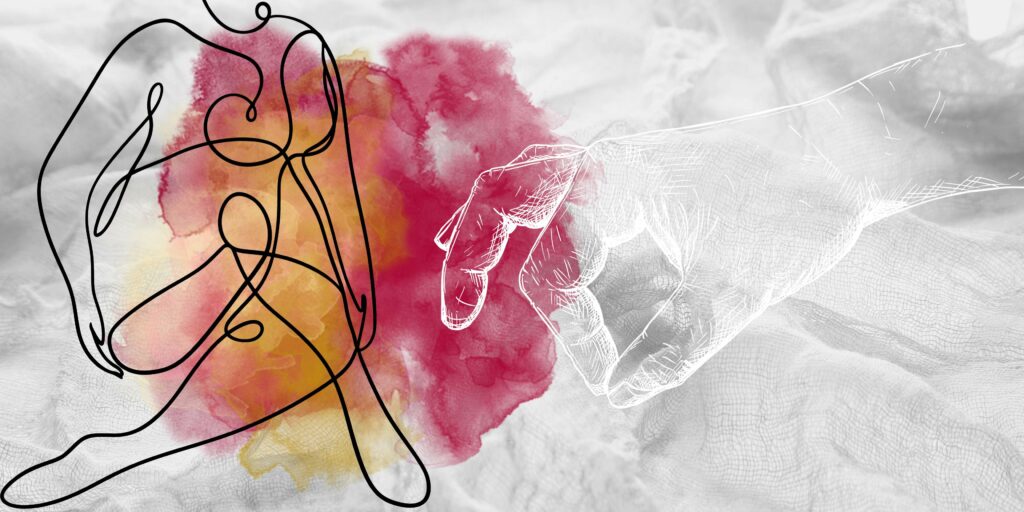twelve new years

February 9, 2024
1945: Rudong, Jiangsu Province—this Spring Festival, we were supposed to celebrate my sign, the rooster. Instead of fish, Didi and I poke at a small plate of jiaozi while Nai Nai taps her fingers and Mama whispers prayers for Baba, a Nationalist major general, to come home safely.
1946: We celebrate Baba’s safe return home with the fullest table I’ve seen since the war started—platters of Nai Nai’s spicy salted fengji; my favorite lotus cakes, ground pork filling the lotus root holes; Mama’s perfectly wrapped jiaozi; three fishes steamed whole whose eyes stare me down; Xiao Ayi’s sweet-sticky tangyuan; San Ayi’s perfectly round niangao. We pile food onto each other’s plates, laughing and eating late into the night until Didi falls asleep at the table.
1947: The Ayis grasp my hand and caress my face. Lao Lao and Nai Nai’s hugs last too long after they hand me my hongbao. The mahjong tiles click into silence. We keep the shutters closed and our packed bags hidden. There’s an urgency in the air, like a person filling Baba’s absence.
1948: Confined to the Shanghai apartment Didi and I share with Si Yifu, we play catch with a wad of paper as we wait for Baba to come home and eat. The tiny apartment fills with the sound of our neighbors scraping their plates. Memories of Rudong wrap around me: staring at the light filtering through the leaves of our courtyard’s gingko tree, throwing rocks at the boats nosing down the canals, wincing as Mama scrubbed the dust off my face. How did we end up here in Shanghai, just us four?
1949: It’s been a few weeks since the officers were forced to retreat into Guangdong. Baba and the other officers get drunk. The other kids and I are thrown together in a jumble of dialects. We point to the foods we want passed. I pile xiaolongbao onto Didi’s plate. He eats them to please me. Why did Mama stay in Rudong? Does she even miss us?
1950: In Taipei, I write my monthly letter to Mama. I apologize for skipping school, for refusing to pray to our ancestors, and for calling Taipei home. I address the envelope “媽媽” then drop it into the shoebox the border sealed shut under my bed.
1951: The day ends with Didi asleep on the couch, littered beer cans, and chopsticks sticking out of half-finished rice in the “bachelor pad,” the apartment Baba rented for me when I started university. The other parents act like the Communists can still steal their children at any moment. Baba is too busy to clutch onto me.
1952: Halfway through dinner, I blurt out that I dropped engineering for math. Baba sets his chopsticks down. His mouth tightens. Didi stares at his bowl, his chopsticks frozen with fish still between them. Baba whispers to the space above my head, Mama would be disappointed that her oldest son escaped only to never get a job. My head rushes. I retort, We don’t know what she thinks because we left her behind to care for your father. My hongbao is smaller this year.
1953: Bags darken Baba’s eyes, gray hairs pepper his buzz, and he constantly cracks his back. Baba’s prayer is long.
1954: It’s my last new year before mandatory military service. Baba had to work again so I have dinner with the other officers’ kids. I finally meet Wang Lin’s friend Cheng Ai Mei. We shout gan bei late into the night as we finish the beers. The lingering mala makes me sneeze. We slip into a blend of Shanghainese, Sichuanese, Mandarin, and Taiwanese, teaching each other the words our mothers taught us. We laugh at each other’s butchered accents as we each speak faster and faster, barely getting the words out through our grins.
1955: I leave the Taichung army base and the crackle of intercepted radio signals to visit Baba. After dinner, I sneak in a walk with Ai Mei. Taipei overwhelms my ears, the children running around squealing, the pots and pans banging in different apartments, the people crowding the streets. Ai Mei pauses and asks when she will meet my parents. Tears sting my eyes. I haven’t seen Mama in eight years. Does Rudong still smell the same, the crab baozi filling the alleys, the canals swishing against the rocks? I hear the echo of Nai Nai’s cackle as she gossips with Lao Li, back before Lao Li’s grandson joined the Communists. I tell Ai Mei I’ll introduce her to Baba tomorrow. I don’t know if we’ll ever see Rudong together.
1956: It’s the first new year since we got married. Baba bounds to the door when Ai Mei and her family knock. I haven’t seen him smile this widely since Rudong. He bought enough food to feed twenty people—platters of fengji and lotus cakes, towers of jiaozi, three fishes steamed whole, sweet-sticky tangyuan, perfectly round niangao, even duck because Ai Mei’s family is from Beijing. Dinner is long and full of laughter, clinking baijiu cups, and toasts to our ancestors.
1957: Marquette, Wisconsin—it’s the year of the rooster again. Before I left to start my PhD, Baba finally asked, Why math? It wasn’t how I expected he’d say goodbye. Math tries to create a language for the unknown swirling around us while also teaching me we have to live with uncertainty, with the knowledge that there’s always more to know. Baba paused, then smiled. I’m glad Ai Mei is going with you. You won’t be alone in your head all the time.
The crisp Wisconsin air buffets my cheeks as I hold Ai Mei’s hand and cradle three-month-old Kathy under my coat. The snow muffles our footsteps. Did Mama look at the same stars last night? Is Baba alone or with Didi? Which of my relatives are even alive? I pray, wishing them all a happy new year. Bundled in my arms, Kathy nestles her head into my chest.



